South Korea, officially known as the Republic of Korea is a country located in East Asia.
South Korea occupies the southern half of the Korean Peninsula, sharing borders with North Korea, obviously to the north, China across the sea to the west, and Japan a short ferry ride to the southeast.
Seoul, South Korea’s capital and the powerhouse of Asia’s third-largest economy, is an attraction all by itself!
This city that never sleeps is a heaven for those yearning to experience some adventure in contemporary Asian surroundings: on every corner, you can find flawlessly reconstructed palaces that stand side by side with glowing night markets and the latest technological wonders.
But South Korea isn’t just about exciting nightlife and breathtaking technologies.
Since it’s not too large of a country, serenity can be found just around the corner from the urban noise.
Just next to the densely forested national parks, you can find mountains that turn into amazing ski centers in winter.
You can also go sailing to remote islands, go farming and fishing with the folk people, and relax in tranquil villages surrounded by rice fields.
Warnings & Dangers in South Korea

OVERALL RISK: LOW
South Korea is overall, very safe and you will probably encounter no problems when traveling there. Still, do not let your guard down and be vigilant at all times.

TRANSPORT & TAXIS RISK: MEDIUM
Tourists are exposed to risk whenever crossing the street since in South Korea risky behavior is common when it comes to traffic. The Republic of Korea has one of the highest rates of traffic deaths for a developed country. Check the road twice before crossing the street. Also, watch out for taxi drivers trying to overcharge you: it is recommended to refrain from using unofficial taxes.

PICKPOCKETS RISK: MEDIUM
Since South Korea is a somewhat popular tourist destination, it is expected that pickpockets operate in larger cities. Petty theft is the most common form of crime in South Korea, but following basic precautions, rules should take care of this issue.

NATURAL DISASTERS RISK: HIGH
When it comes to natural disasters, South Korea has had a history of earthquakes, but most of them caused little damage. Another issue when it comes to natural disasters is typhoons that may occur in August and September, as well as tsunamis.

MUGGING RISK: LOW
South Korea is safe when it comes to mugging or kidnapping, though precaution is still advised. Avoid poorly lit streets and areas, and people offering you free drinks.

TERRORISM RISK: LOW
Even though there haven't been any terrorist attacks in South Korea's recent history, there is heightened tension between South and North Korea, so precaution is recommended.

SCAMS RISK: MEDIUM
There is a risk of someone scamming you in South Korea since there are a lot of scammers and con artists on the streets of this country. The most notable among them is the Teahouse scam with girls saying to tourists that they want to practice conversing in English, which usually ends in a teahouse with a huge bill. Other forms of scams are mostly overcharging in cafes and restaurants, with a separate menu just for tourists.

WOMEN TRAVELERS RISK: LOW
South Korea is a safe destination for women traveling solo, but it is still advised that unaccompanied women take extra precaution measures, avoid poorly lit and secluded areas, etc.
So... How Safe Is South Korea Really?
South Korea is a very safe country to visit.
Its crime rates are much lower than in the US and on par with most European countries, Japan, Singapore, and Hong Kong.
This mostly means that, for tourists and anyone else, it is perfectly safe to walk around at night, even in the larger cities.
Violent crime is also rare.
Only foreigners and tourists looking for trouble could end up in one, and this usually applies to drunker or intoxicated visitors, provoking fights in bars.
However, if you do find yourself in a situation concerning anything police can help you with, they are mostly at every corner, and even though they don’t speak English, they have interpreters on-call that can help you.
Another issue in Korea is the problems that Korean motorists cause to its traffic.
They sometimes speed through pedestrian crossings, go through red lights and have no problem passing within a hair-width distance from pedestrians and other cars.
Traffic lights do not mean much to these drivers, so be careful when crossing the street as you never know where they can jump out from.
Generally, the streets of South Korea and their traffic culture is not too safe, and it is safer to use underground passageways.
Also, keep in mind that even though an armistice was established between North and South Korea in the 1950s, these two countries are, officially, still at war.
In the light of recent events that made the tension between them very high, there is general fear that a new war might result in tragic consequences and casualties, so, by all means, get informed on current events in the region before traveling there.
How Does South Korea Compare?
| Country | Safety Index |
|---|---|
| South Korea | 82 |
| Morocco | 54 |
| Slovenia | 87 |
| Japan | 83 |
| Ghana | 73 |
| Portugal | 57 |
| Slovakia | 80 |
| Greece | 73 |
| Australia | 86 |
Useful Information

Visas
Regulations and conditions concerning visa and entry into the state of South Korea regularly change, so it is best to get informed at the moment of planning a trip to this country. Foreigners are finger-printed upon arrival in the Republic of Korea. Make sure your passport is valid for at least 6 months after your intended date of departure from South Korea. If you are not sure about your visa status, visit www.doyouneedvisa.com which will let you know whether or not you need a visa based on your nationality and the country you want to visit.

Currency
South Korean Won is the official currency of South Korea. It may not be the best idea to exchange money in the street exchange offices. Your best bet when exchanging money is either an official bank office or withdrawing money from an ATM.

Weather
South Korea has a temperate climate characterized by four distinct seasons. Winters are usually long, cold and dry, summers are very short and hot, with lots of humidity, and spring is actually the most pleasant time to visit South Korea. Autumn is also pleasant but like spring and summer, short in duration.

Airports
Incheon International Airport is the largest airport in South Korea and also one of the largest and busiest airports in the world. It is located west of Incheon's city center, on an artificially created piece of land between Yeongjong and Yongyu Islands.

Travel Insurance
Just like anywhere else, we recommend getting travel insurance when traveling to South Korea, since it covers not only the costs of medical problems but also theft and loss of valuables.
South Korea Weather Averages (Temperatures)
Average High/Low Temperature
| Temperature / Month | Jan | Feb | Mar | Apr | May | Jun | Jul | Aug | Sep | Oct | Nov | Dec |
|---|---|---|---|---|---|---|---|---|---|---|---|---|
| High °C | 1 | 4 | 10 | 18 | 23 | 27 | 29 | 30 | 26 | 20 | 12 | 4 |
| Low °C | -7 | -4 | 1 | 7 | 13 | 18 | 22 | 22 | 17 | 10 | 2 | -4 |
| High °F | 34 | 39 | 50 | 64 | 73 | 81 | 84 | 86 | 79 | 68 | 54 | 39 |
| Low °F | 19 | 25 | 34 | 45 | 55 | 64 | 72 | 72 | 63 | 50 | 36 | 25 |
South Korea - Safety by City
| City | Safety Index |
|---|---|
| Incheon | 69 |
| Seoul | 77 |
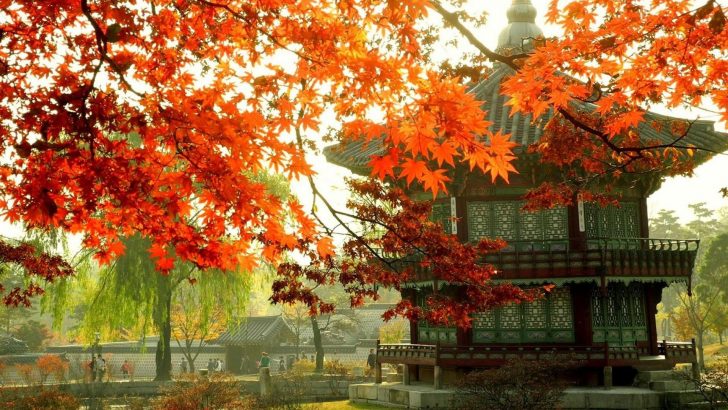
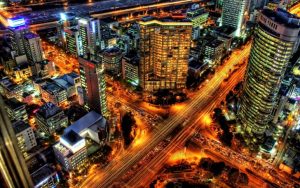
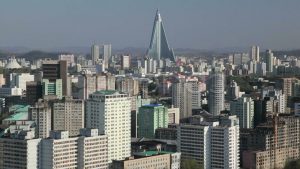
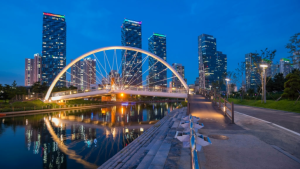
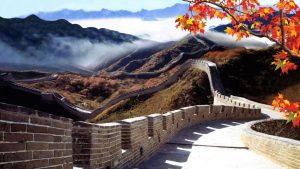
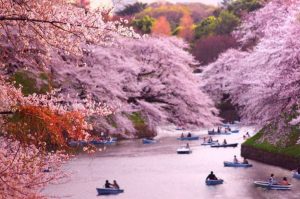






Can't really ask for more~
I have lived in South Korea for 13 years of my adult life and I can tell you for sure that there are no PICKPOCKETERS. I have never heard of anyone being the victim of such crime – not Korean nor foreigner.
I have only heard/felt a tiny earthquake during those 13 years but it was tiny, i don’t know at what point we stop calling it earthquakes and start calling it vibrations~
The country is as safe as it can get, I see people on front of universities leaving their notebook computer on the cafe table while they go have lunch; people hold their seats with their cellphone/bags ! its quite crazy tbh.
I will agree about the scam though, at most it is medium-low~ only the few handpicked idiots will fall for these though, seriously, you have to be really dumb to fall for these scams.
Bruh
Is Seoul offshore?
Good but still be careful
Hey bro i got pickpocketed there a couple of years back at myeongdong. After i left the cab and went down, I proceeded to take out my wallet and paid the taxi driver. Then, I proceeded to put my wallet into my coat. My coat had quite deep pockets, so no way it would have dropped, nor me leaving it in the taxi. I realised I was a victim only after I went into the first shop on the left and my mum asked me to pay. I remember it was very crowded and I even made a police report. Still have it till now. But i have to say, people there were very very helpful. Would definitely go there again once more.
Safe
South Korea Is Very Safe
Good country
Good country
Great
Yes I am South Korean and safe and great
Very safe
What pickpockets? What natural disasters? What scams? I am from here and surely there are NONE of them. I agree about the traffic, since there is lots of accidents but nothing else! Can you fix this a little?
Huh? I’ve lived in the capital city of Seoul for about two years and went back many times for visits, but I’ve NEVER HEARD OF ANY PICKPOCKETS, NATURAL DISASTERS, OR SCAMS against tourists EVER. Traffic is actually normal too, there won’t be any accidents if you are careful. Looks like some parts need to be fixed.
i like to hear that
Natural disasters? Earthquakes? Tsunamis? This website is messed up with Japan geographically and some earthquake happened because as a after effects of some North Korean nuclear testing. Traffic can be messed up, politics can be a multi topic connected to Korea’s history. Not forgetting its rough years under Japan.
South Korea is sooo safe. I was living in Busan for two months and it was amazing. But I agree with the traffic. People even drive on pavements, especially on scooters. Also you can get your drivers licence very fast there, so I am not really surprised. If you are in a big city, I recommed using underground passage or subway, it’s cheap and safe. But in overall, Korea is really safe.
You can put your phone and wallet on the table in a restaurant, go to the toilet and you will find your properties on the table. Also in the night it wasn’t bad. We were usually hanging out in the night and even in 3 AM there are so many people outside and a plenty of neon lights. Seriously they are everywhere, so if you are not stupid and don’t go into small dark alleys, it should be fine.
Most of the Koreans are so nice to us foreigners, sometimes they were starring at me, but in a curious way not the bad way. They were even chatting with me evn though they didn’t know me and also took pictures with me, which was funny and I felt kinda special XD.
Key Details Wrong
I have lived in SK for 16 years and have never once heard of anyone getting pickpocketed. Petty theft is almost unheard of. Also, earthquakes rarely strike here, as the Korean peninsula lies outside of major fault zones. The country actually doesn’t lie on the Pacific Ring of Fire.
There are typhoons in the late summer/early fall and flooding/landslides occur during the rainy season, but other than that, natural disasters are rare. And “teahouse scam” is common to China, not Korea. Whoever wrote this had got their East Asian countries mixed up.
Korea is much SAFER than this rate
This Key Rate must be written by somebody who never visited Korea
Korea is far away from pickpocketing and natural disaster
Korean people do not even take stuffs in public if it’s not theirs
Unlike Japan, Korea is much safer with natural disaster as well
Korea does not have tsunami or earthquake or active volcano as much as Japan
Please be awared!
I won’t call South Korea a safe country to visit. Many of their restrooms and fitting rooms are hidden with cameras. Your videos and photos could be uploaded to their websites. And your life can be their porn. Please be awared of it!
I guess you never been to South Korea.
I heard of this too
Yes, I heard of this too. I might be in one of those Mol Cas (secret films) – will never know since no one I know would ever pay to go into these sleezy website that shares Mol Cas of people peeing! Police and women groups are cracking down in these websites and checking the bathrooms but still know if you go into public bathrooms you could be filmed! Sleezy things happen everywhere in the world though.
no, this almost doesn’t happen, and when it does, it’s a rare event enough to come out on every news channel. you can trust public bathrooms, they’re clean and safe.
Natural disasters and PICKPOCKETS? Yeah, something tells me you haven’t lived here.
Pickpockets, yeah maybe up until the 80s. But I’ve seriously seen people return things that are dropped. Some girl noticed my backpack and pointed it out. I’ve sat next to a guy who got up and his wallet spilled out of his back pocket, and a guy on the other side immediately picked it up and returned it.
The biggest natural disaster is the annual typhoons, but that’s honestly about it. Earthquakes are incredibly rare and nothing to write home about.
Misleading
Natural disasters and PICKPOCKETS? Yeah, something tells me you haven’t lived here.
Pickpockets, yeah maybe up until the 80s. But I’ve seriously seen people return things that are dropped. Some girl noticed my backpack and pointed it out. I’ve sat next to a guy who got up and his wallet spilled out of his back pocket, and a guy on the other side immediately picked it up and returned it.
The biggest natural disaster is the annual typhoons, but that’s honestly about it. Earthquakes are incredibly rare and nothing to write home about. Japan’s natural disaster is rated as low and Korea’s is high? I’m not ragging on Japan here, but seriously? Japan has typhoons, tsunamis, and major earthquake risks. Korea’s not even close to the Ring of Fire nor does it have a risk of tsunamis. I don’t get this logic…
Is it Correct?
As many have pointed out, I can’t agree either.
In particular, NATURAL DISASTERS RISK..
I’m sorry for Japan, but I think Japan and Korea have changed?
PICKPOCKETS & SCAMS RISK also disagree.
How many countries are there in a country where I can carry my cell phone in
my back pocket and leave my bag and cell phone on the table in cafes and restaurants?
Came here for college, ended up applying for citizenship.
I’ve been living here for about two of my adult years, and oh boy it’s a place to be! The one thing I don’t like about this place is traffic. I was so shocked when I first started driving in Korea. I mostly walk and take the bus now because my car runs out of gas easily. One thing I wish was better here is LGBTQ Rights. Like most countries in Asia, South Korea has banned gay marriage. I’ve had to travel out of the country twice this year for thing I should be able to do here because of it. Overall I would really recommend at least staying for a couple weeks.
As a Korean who lived in South Korea for my whole life, South Korea is extremely safe, probably one of the most safest in the world. This rate is clearly incorrect and untrue. The person who wrote this probably never been to Korea, as they say there are many natural disasters and pickpocketing. Because the truth is there are barely any natural disasters in South Korea and pickpocketing rarely happens. If you go to Seoul and other cities, you can literally see kids young as first graders with their friends walking down the streets, and it’s perfectly fine as long as it isn’t late in the night. That’s how safe it is. This rating is stupid and obviously written by a person who has never experienced anything in South Korea.
Loved Korea!
I stayed outside of Seoul for a 3 month stay and didn’t experience any problems with scamming, crime or earthquakes while there. However, not at the fault of Korea, I did experience poor air quality as the polluted air from China made its way across the Yellow Sea. If you have asthma this could be a serious health issue. Traveling within the country is easily done by train or bus. Once you arrive in the country, be sure to get a taxi/bus/subway card at any convenience store. You can refill it as needed.
As an older woman traveling without knowing the language fluently, I felt safe at any time of the day or night. Many times, I walked home after 12 midnight from the university and never had a problem. Oh, one final note, if you see a purse or bookbag at a bus stop, don’t touch it. I found that people will return, and no one has bothered it.
I was born in South Korea and visit often, (my mother is South Korean), and South Korea is extremely safe!
However, there is a little thing for people who use the laddies’ room in major subways, in most of the stalls with squatty potties, there might be a camera. this is not legal in South Korea, but the major companies do it anyway. avoid subway restrooms, but other than that, South Koreans are very welcoming and the country is very beautiful!
Safe travels!
A real danger is loaming in the wild in SK, seriously nothing else mentioned above
As many users already pointed out, this information is not helpful at all to reflect and misled others if they would believe any of this. I’ve been living here more than 10 years for now, and I’ve been in every parts of the southern peninsula, so I can guarantee, you can get a great, rare story to tell if any dangers mentioned above befallen to you in this country. XDD Before Korea, lived in so many parts of the world except African continents, truly I never found a similar level of civil safety on anywhere except small rich, city-states like Singapore, Aruba, or HK before the umbrella revolution(very sad about this)… Anyone who just only wanted to see what’s the true hidden danger by saving times, look to the very last paragraph(in summary, just don’t go into off-the-beaten nature tracks, that’s all), and for others who just wanted to know why on earth it’s that much safe, I’ll demonstrate the underlying reasons.
Korea, especially around any big city area is under the surveillance devices everywhere, I’m not just talking about the conventional CCTV that the gov’t puts it, but everywhere where there is any car, you bet that they have personally-installed blackbox cams because Koreans are such a careful people and competitive to have fancy devices(once your neighbour has it, you need to get the same thing like a peer pressure), and everyone knows that, and can be used as an evidence in court if any altercation happened. And almost all the shops accept credit cards(At this point, even the moving food trucks and small dingy bodega selling vege on traditional market) and gov’t enticed ppl used that for stifling tax-evasion case of shop owners on a money-transaction, anyone seldom carries big money like in Japan or Italy where there are a lot of shops not accepting int’l Visa or Mastercards, which means pickpocketters can’t prosper. If there is a small, unlicensed street vendors, they know that rarely anyone has any money bills in their pocket, so usually signs up their bank account if they don’t have a card readers. Basically it’s not the environment sustainable for that profession. Think about it, if the cockroach(pickpocket or any small time crooks) should live, there should be any breadcrumbs to subsist(ppl carrying huge money bill often, so that they can think of doing the pickpocket as a daily job)
And you don’t need to worry about the syndicated-crimes, gang-involved crimes are rare unless you’re looking for something illegal(like prostitution, joint, any stuffs that you can easily imagine, plus you can get those much easier with cheaper prices in other Asian countries, why the hell you chose Korea for getting those from the first place?, I have no idea), since the dictatorship in 90s to get rid of them almost into smithereens. Pub brawl could happen, but also rare since Korean court interpreted a nonsensically limited scope to allow as a self-defense, so you don’t need to get worried to get mugged or punched just because you’re drunk in the middle of the night. There are pretty much lots of other white-collar mid-aged guys will gonna be your sleeping buddy on the streets vomiting and sleeping, you don’t need to get worried, I guarantee you.
Unlicensed taxi, never heard of such a thing, please tell me anyone if you’ll gonna see that one, I wanna know XDD… Just using Kakao taxi or Uber if you still wanted to be safer, although I never have experienced any overcharge even when I had not spoken Korean well(If you are sure that you got overcharged, call 02-120 and press 9 after the beep, English service gov’t call centre will take this matter seriously and effectively make that driver lost the license for good, I can assure that)… Any inconvenience you’ve experienced just even for a slight attitude of driver let alone overcharging, call that number above with the taxi’s plate number or the driver information that should be on the dashboard. That thing existed something like 90s, teehouse scam… People in here don’t even drink tea that much like in China, they go to cafe, I’m not so sure if there’s any teahouse other than few counting all over the city, only for that luxurious traditional culture courses organised the gov’t thing, rather there might be some attempt to lure you to go some Shaman place around Gangnam st., but you can easily ignored them, they don’t follow you to say twice, and nor does it target for foreigners mostly.
Rather you should be careful not to go into mountain without tracks or mark signs, or natural beachways(any nature that does not show on map as a tourist area) especially on the northern side of the countries, because there might be a remnant of blind mine bombs that has been washed away accidentally from the DMZ. Since everyone gets so used to this safest countries’ spiel, probably no one will gonna mention to you about this hidden danger, from my surmise of living here for long, is due to this reason: this is not the usual Anglosphere nations, who stipulated ‘a freedom to loam’ around the nature, every land probably has an owner and you can’t just go in nature and grab nuts or mushroom, so people would not expect you’ll gonna do that in any case. 2. That scenario that you’ll gonna be the victim of that except you’ll willingly forced your way into the true demarcated DMZ area, is equally slim, realistically speaking.
THERE'S NO PICKPOCKETS OR TEAHOUSE SCAMS IN KOREA
I never heard of them happening in korea…. Also I don’t understand why ‘natural disaster risk’ is high since there’s almost no earthquake or tsunami(very small even if there’s some). Korea is one of the safest countries in the world to visit.
PROS and CONS
The air pollution is probably the biggest issue compared to any earthquakes. Japan has many more earthquakes and tsunami risks. Rainy season can bring hurricanes to Jeju Island and the mainland though.
Although South Korea is a safe country, there are pockets of incidents that do happen in terms of petty crimes. Reddit korea can verify some of those claims.
Traffic and taxi issues have been reported by foreigners as well.
In general, you don’t want to linger around clubs and bars late at night as basic common sense.
Overall South Korea is a pretty safe country, esp the areas outside of Seoul like Jeju Island, Songdo, etc I spent most of my time on Jeju Island and recommend it the most for visitors
Korea is very safe
Korea is very safe. In fact, many tourists visit the place because of this reason. Seoul has also ranked as one of the safest cities in 2019.